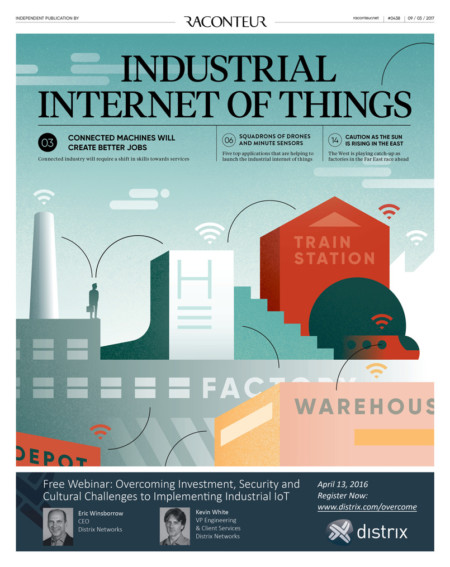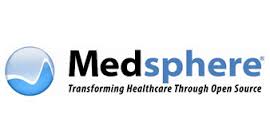 Admit it: you're worried about your online privacy. Admit it: your personal health information is one of the things you worry most about getting hacked. Admit it: you don't understand why your health care providers seem to have a hard time sharing key information about you. And admit it, you're not quite sure what health insurers really do, except for always saying no and for getting between you and your health care providers. This is why blockchain is the new hope -- or hype -- for health care. What intrigues me most about it, though, are its "smart contracts." The GAO recently cited health as a key area of cybersecurity weakness, and TrendMicro profiled why cybercrime is a particular threat for health care...
Admit it: you're worried about your online privacy. Admit it: your personal health information is one of the things you worry most about getting hacked. Admit it: you don't understand why your health care providers seem to have a hard time sharing key information about you. And admit it, you're not quite sure what health insurers really do, except for always saying no and for getting between you and your health care providers. This is why blockchain is the new hope -- or hype -- for health care. What intrigues me most about it, though, are its "smart contracts." The GAO recently cited health as a key area of cybersecurity weakness, and TrendMicro profiled why cybercrime is a particular threat for health care...
affordability
See the following -
3D Printing Educator Spotlight On: Joshua Pearce, PhD, Associate Professor, Michigan Tech
 As the global population continues to expand massively, with an estimated 7.5 billion people alive today, sustainability is becoming an ever-more-pressing concern. It takes a lot of energy to support a large and growing population, especially with the living standards seen in the 21st century. In the US, where capitalism looms large, affordability poses another issue as many goods and services carry with them a hefty price tag. At the convergence of a few major areas looking toward the future of sustainability is Dr. Joshua M. Pearce, who has engaged in extensive work with 3D printing, solar power, and open source research as he has headed thorough studies examining these areas and working to educate students and industry alike...
As the global population continues to expand massively, with an estimated 7.5 billion people alive today, sustainability is becoming an ever-more-pressing concern. It takes a lot of energy to support a large and growing population, especially with the living standards seen in the 21st century. In the US, where capitalism looms large, affordability poses another issue as many goods and services carry with them a hefty price tag. At the convergence of a few major areas looking toward the future of sustainability is Dr. Joshua M. Pearce, who has engaged in extensive work with 3D printing, solar power, and open source research as he has headed thorough studies examining these areas and working to educate students and industry alike...
- Login to post comments
A DIY Pharmaceutical Revolution Is Coming—If It Doesn’t Kill Us First
As Mixael Laufer tells it, the vision came to him in El Salvador. Laufer was visiting Central America as a human rights envoy, touring a tiny, rural mountain town with the Marin County Peace and Justice Coalition. When he arrived at the town’s medical clinic, it had just run out of birth control. “I thought to myself, ‘This is a country where there are there are methamphetamine and ecstasy labs everywhere. Birth control isn’t that much more complicated,’” Laufer told Gizmodo. “‘Why aren’t these people just making their own birth control?’”...
- Login to post comments
Connected Tech Is Just the Thing for the NHS
 Healthcare systems all over the world are struggling with two fundamental concerns – how to afford the rising cost of delivering care and how to integrate ever-changing new technologies? These twin challenges are intrinsically connected, for emerging technologies offer the promise of making care more affordable as well as more effective. The rewards for successful implementation will be significant, for patients as well as for those responsible for the sustainability of healthcare systems. In healthcare, the internet of things (IoT) is changing the way we think about looking after people. At the heart of this technological revolution is a focus on connectivity. Drug discovery and greater understanding of disease are critical.
Healthcare systems all over the world are struggling with two fundamental concerns – how to afford the rising cost of delivering care and how to integrate ever-changing new technologies? These twin challenges are intrinsically connected, for emerging technologies offer the promise of making care more affordable as well as more effective. The rewards for successful implementation will be significant, for patients as well as for those responsible for the sustainability of healthcare systems. In healthcare, the internet of things (IoT) is changing the way we think about looking after people. At the heart of this technological revolution is a focus on connectivity. Drug discovery and greater understanding of disease are critical.
- Login to post comments
Coverage Expansion Fail: Less Than One-Third Of Obamacare Exchange Enrollees Were Previously Uninsured
At the end of the day, for all of the rhetoric and promises about what Obamacare would achieve, the health law’s most ardent supporters have stuck to their guns because of one thing: coverage expansion. But new data suggests that Obamacare may fail even to achieve this goal. Instead of expanding coverage to those without it, Obamacare is replacing the pre-existing market for private insurance. [...] Read More »
- Login to post comments
Elsevier Acquisition Highlights the Need for Community-based Scholarly Communication Infrastructure
 Like many others in the scholarly community, we were very disappointed to learn about the recent acquisition by Elsevier of bepress, the provider of the popular Digital Commons repository platform. The acquisition is especially troubling for the hundreds of institutions that use Digital Commons to support their open access repositories. These institutions now find their repository services owned and managed by Elsevier, a company well known for its obstruction of open access and repositories...
Like many others in the scholarly community, we were very disappointed to learn about the recent acquisition by Elsevier of bepress, the provider of the popular Digital Commons repository platform. The acquisition is especially troubling for the hundreds of institutions that use Digital Commons to support their open access repositories. These institutions now find their repository services owned and managed by Elsevier, a company well known for its obstruction of open access and repositories...
- Login to post comments
For HIX Success, First Fix Government IT And Set Expectations
Health insurance exchanges should strive for several goals to prove their mettle and recover their public perception, according to the founding director of the Massachusetts Health Connector, an exchange that was once a national model and is now struggling to function. Read More »
- Login to post comments
HCCA/Southern Inyo Healthcare District Selects OpenVista EHR
 Medsphere Systems Corporation, the leading provider of affordable and interoperable electronic health record (EHR) solutions and services, today announced that the company and Healthcare Conglomerate Associates (HCCA) will partner to improve and modernize care in the area on behalf of the Southern Inyo Healthcare District (SIHD). The agreement calls for Medsphere to implement the OpenVista® electronic health record (EHR) system in Southern Inyo Hospital and manage and support the hospital’s information technology through the company’s Phoenix Health Systems division...
Medsphere Systems Corporation, the leading provider of affordable and interoperable electronic health record (EHR) solutions and services, today announced that the company and Healthcare Conglomerate Associates (HCCA) will partner to improve and modernize care in the area on behalf of the Southern Inyo Healthcare District (SIHD). The agreement calls for Medsphere to implement the OpenVista® electronic health record (EHR) system in Southern Inyo Hospital and manage and support the hospital’s information technology through the company’s Phoenix Health Systems division...
- Login to post comments
Health Care Should Get "Smart" about Protecting Patient Data
- Login to post comments
Health Care's Kodak Moment
 For those of us of a certain age, a "Kodak moment" connotes a special event that should be captured by a photo, presumably on Kodak film. For younger generations, the term probably doesn't mean anything, because they don't know what Kodak is and have never seen film. That's why, for some, "Kodak moment" has come to suggest a turning point when big companies and even entire industries can become obsolete. Health care could soon be at such a point. Anthony Jenkins, a former CEO of Barclay's, recently warned that banks could face a Kodak moment soon...
For those of us of a certain age, a "Kodak moment" connotes a special event that should be captured by a photo, presumably on Kodak film. For younger generations, the term probably doesn't mean anything, because they don't know what Kodak is and have never seen film. That's why, for some, "Kodak moment" has come to suggest a turning point when big companies and even entire industries can become obsolete. Health care could soon be at such a point. Anthony Jenkins, a former CEO of Barclay's, recently warned that banks could face a Kodak moment soon...
- Login to post comments
Health IT Security, FHIR Focus of ONC Secure API Server Challenge
ONC is challenging healthcare stakeholders to build secure Fast Healthcare Interoperability Resources (FHIR) servers to improve health IT security and ensure that secure FHIR options are available in the future. The Secure API Server Showdown Challenge will ideally “identify unknown security vulnerabilities in the way open source FHIR servers are implemented,” ONC Office of Standards and Technology Director Steven Posnack, MS, MHS, wrote in a blog post...
- Login to post comments
HealthTap Unveils “HealthTap Cloud™”
 HealthTap...today unveiled HealthTap Cloud™, a first-of-its-kind development platform that enables health developers to build applications more efficiently and cost effectively. HealthTap Cloud™ is powered by HOPES™, the world’s first Health Operating System, which connects the entire continuum of care to each person’s unique Personal Health Record (PHR). Application Programming Interfaces (APIs) and Software Development Kits (SDKs) that help developers build highly personalized web, iOS, and Android apps are available with HealthTap Cloud™...
HealthTap...today unveiled HealthTap Cloud™, a first-of-its-kind development platform that enables health developers to build applications more efficiently and cost effectively. HealthTap Cloud™ is powered by HOPES™, the world’s first Health Operating System, which connects the entire continuum of care to each person’s unique Personal Health Record (PHR). Application Programming Interfaces (APIs) and Software Development Kits (SDKs) that help developers build highly personalized web, iOS, and Android apps are available with HealthTap Cloud™...
- Login to post comments
How Community Health Centers Support Patient-Centered Care
Each year, HHS celebrates Community Health Centers week. It is a time where the agency recognizes the impact community health centers have on patient-centered care and how they promote access to care in vulnerable or medically underserved populations...
- Login to post comments
How Open Source Is Enhancing Healthcare
 With the recent development in software technology, many application systems are now competing for medical attention. Healthcare (or what we can call it as medical software) is evolving rapidly through communications, record-keeping system to a source of decision support, consequently, playing an active role in clinical service. However, unlike many other services, medical software is not very well regulated and places like a safety burden and cost of ineffective use solely depend on the physicians...
With the recent development in software technology, many application systems are now competing for medical attention. Healthcare (or what we can call it as medical software) is evolving rapidly through communications, record-keeping system to a source of decision support, consequently, playing an active role in clinical service. However, unlike many other services, medical software is not very well regulated and places like a safety burden and cost of ineffective use solely depend on the physicians...
- Login to post comments
How to Fix the EHR Mess
 Computers, more specifically, electronic health records (EHRs), will someday revolutionize the practice of medicine. In fact, successful computerization of medical care is the most critical step necessary to transform the American health-care system from its current sorry state to the 21st century system of our dreams. It is ironic, then, that today EHRs represent one of the worst problems plaguing medical professionals. At this point, many physicians would say that EHRs have created more problems than they have fixed. The most important question is how do we get from where we are to where we need to be?...
Computers, more specifically, electronic health records (EHRs), will someday revolutionize the practice of medicine. In fact, successful computerization of medical care is the most critical step necessary to transform the American health-care system from its current sorry state to the 21st century system of our dreams. It is ironic, then, that today EHRs represent one of the worst problems plaguing medical professionals. At this point, many physicians would say that EHRs have created more problems than they have fixed. The most important question is how do we get from where we are to where we need to be?...
- Login to post comments
Is the Consolidation of the Food Industry Turning Lettuce into a Weapon of Mass Destruction?
 In the summer of 2006, consumers across the country began falling sick from a particularly nasty strain of Escherichia coli bacteria, known as 0157:H7. Not all E. coli bacteria are dangerous, but 0157:H7 belongs to the Shiga toxin-producing group of pathogens (known as STEC), which can cause severe, and sometimes fatal, illness. By early October, 199 people in twenty-six states had fallen ill, resulting in 102 hospitalizations and thirty-one cases of kidney failure. Three people died, including a two-year-old boy in Utah...
In the summer of 2006, consumers across the country began falling sick from a particularly nasty strain of Escherichia coli bacteria, known as 0157:H7. Not all E. coli bacteria are dangerous, but 0157:H7 belongs to the Shiga toxin-producing group of pathogens (known as STEC), which can cause severe, and sometimes fatal, illness. By early October, 199 people in twenty-six states had fallen ill, resulting in 102 hospitalizations and thirty-one cases of kidney failure. Three people died, including a two-year-old boy in Utah...
- Login to post comments